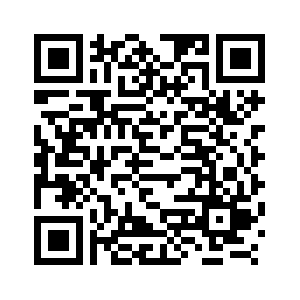by Xinhua writers Zhu Shaobin and Guo Xiaoyu
BEIJING, June 12 (Xinhua) -- By threatening additional tariffs and discriminating against Chinese clean tech products, Western protectionism is bringing chaos to the stability of the new energy industry critical to the world's green transition and realization of the climate goals.
At a press briefing on the development and policies of China's new energy sector, held in Beijing on Wednesday, Chinese government officials expressed concerns over the West's "naked protectionism" in the new energy industry, saying it brings more harm than good.
The West's unfair practices targeting Chinese clean tech products, including electric vehicles (EVs), are an example of double standards, said Ding Weishun, deputy director of the policy research department at China's Ministry of Commerce (MOC).
The United States and Europe can not ask China to share the great responsibility of coping with climate change, while at the same time obstructing the free trade of China's green products, said Ding. "We believe these contradictory acts are a typical example of double standards, and will ultimately undermine global green and low-carbon development and the realization of the climate goals."
In the latest development, the European Commission on Wednesday pre-disclosed the levels of provisional countervailing duties it intends to impose on imports of battery-powered electric vehicles from China.
Criticizing the EU's targeting of Chinese EVs as unfair, China's commerce ministry said the move risks creating and escalating China-EU trade frictions, and it undermines fair competition.
"This move by the EU will not only damage the legitimate rights and interests of China's EV industry, but will also disrupt and distort the global auto sector's industrial and supply chains, including those in the EU," according to the MOC statement.
The EU announcement followed the U.S. decision last month to raise additional tariffs on imports of Chinese products, including EVs, lithium-ion batteries, solar cells, critical minerals, semiconductors, cranes, steel and aluminum.
CHINA URGES FAIR COMPETITION
Guo Shougang, an official with the Ministry of Industry and Information Technology, said during the press briefing that China has contributed clean technology and valuable experience to the world, and that the Chinese EV market is highly open and characterized by fair competition.
For example, more than half of Tesla's cars are produced in China, and about a third of its cars are sold in the Chinese market. This illustrates a highly open new energy vehicle industry in China where all parties benefit, said Guo, adding that multinational auto firms also oppose the politicization of the EV trade.
"Major multinationals have established factories in China for production and embraced competition, and, during this process, they have made profits while improving their competitiveness," Guo said.
The West's blockade of Chinese green products violates WTO rules and harms the interests of consumers around the world, he added.
In Ding's view, China and the EU are important trade partners with a solid foundation for cooperation. He emphasized that deepening cooperation through positive competition and striving for win-win outcomes constitute the right approach to bilateral relations.
Various Chinese NEV manufacturers have opened factories in European countries. Chinese battery producer CATL, for example, announced the decision to build its second European battery plant in Hungary in 2022. And Chinese carmaker BYD has also decided to invest in a Hungarian production base for its electric vehicles.
"We hope the EU and China can meet halfway and resolve their respective concerns appropriately, through dialogue," Ding said, noting that China is firmly against any type of unilateralism or protectionism.
RULES-BASED SUBSIDIES
Among the West's bases for its actions against Chinese products are what it claims are excessive subsidies for the EV industry in China that have led to so-called industrial overcapacity.
"Such claims run counter to both common sense and reality. Indeed, they are new double standards and trade protectionism tricks," Ding said.
He noted that governments around the world commonly use subsidies to nurture industrial development and optimize industrial structures.
Chinese subsidies comply with the rules of the World Trade Organization (WTO) and are enjoyed equally by all types of market entities. Additionally, the Chinese government has consistently informed the WTO whenever it grants subsidies to companies, according to Ding.
"As a universally recognized practice, the application of subsidies must abide by WTO rules and must be equitable, transparent and law-based," he said, noting that the United States and the EU have in recent years scaled up their own subsidies, many of which are discriminatory.
He stressed that amid positive competition, China always seeks cooperation to achieve win-win outcomes. "China is willing to cooperate with all countries on the global new energy industrial chain, and to work together to advance technological innovation and industrial growth." ■



